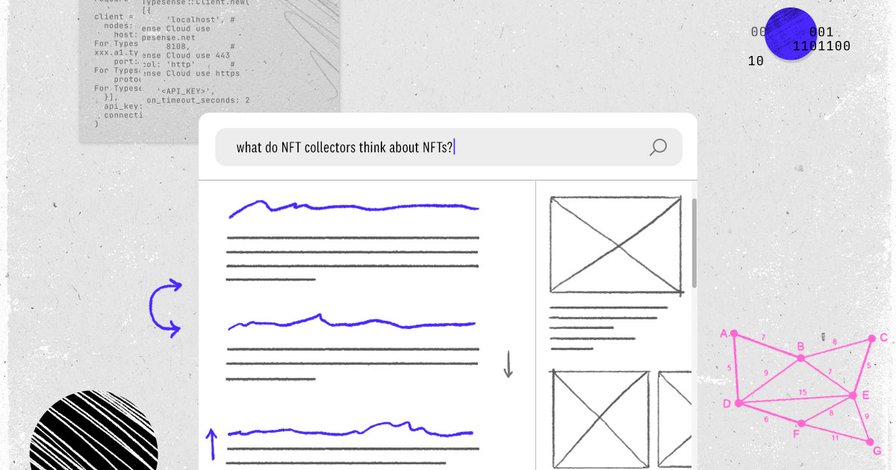The Future of Search Is Boutique | Future

my notes ( ? )
Basically this piece starts to unpack for me my ideas of what millions of Hubs networked together and processed by AI would offer the world in terms of content discovery:
With "tools like Notion, Airtable, and Readwise ... people are aggregating content ... reviving the curated web. But at the moment these are mostly solo affairs... fragmented, poorly indexed, and unavailable ... [not] multiplayer".
Right now the default way of finding information is Google, but "the websites at the top of Google are not necessarily the highest-quality ones, but rather the ones that put the most effort into SEO". Rather than try to "organize the world’s information... [we should] organize the world’s trustworthy information" - which is more likely when you combine the curation efforts of millions of people whose own credibility depends on the content they curate.
Rather than "attack Google head-on ... build boutique search engines that index, curate, and organize things in new ways".
One way is to create a "vertical search aggregators using structured data specific to their industries... distinct advantages that horizontal software can never achieve... [however] When you monetize via ads, curation takes a backseat to featuring advertisers ... [forcing] ethically dubious design choices that generate massive trust gaps". Also, as "anyone can have a profile" they are flooded with content, destroying signal-to-noise.
Currently, curation appears to consist of "providing a product review... links... recommendations... [via] chronological feeds designed to surface the ideas of the last 24 hours, not to accumulate and surface knowledge as needed... [needs] a way to search through a curator’s archives... The opportunity is in moving curated content feeds away from their never-ending-now orientation and toward more goal-oriented interfaces... combining "curation feeds [with] ... search and structured data."
Exactly: while Hub content is sorted reverse chrono, it's a structured library, not just a feed. What he calls "better search and better curation... wrapped in a better business model — a ... boutique search engine [which] help us move away from ephemeral, time-bound feeds into contextual, high-signal, trustworthy knowledge spaces...[offering] multiple trails through the content", I call a decentralised network of Hubs.
So how do search and curation co-exist productively? "the real question is not whether you need curation or search but at what point it comes in, and how". Looking at several examples, he identifies "value in what they exclude as much as what they include". Obviously, Hubs exclude all content their Editors don't find valuable enough to annotate, store and recommend to their audience, which is precisely what he means when he describes boutique search engines as feeling "less like the Yellow Pages and more like texting your friends to ask for a recommendation... constrained supply... is the foundation for their biggest moat: trust".
Finally, some challenges:
- "If the value proposition is signal over noise, how do you scale the signal?" As they scale, content diminishes in quality. I don't think that's an issue for MyHub, as scaling simply means more Hub Editors adding more content.
- business model: "subscriptions present an opportunity... [but] not a panacea, especially when the use cases are not frequent enough... [in which case] come up with your own flavor of “come for the search, stay for something else.” ... [subscribers] have no real incentive to help the platform grow. Nascent token-based business models show early signs of promise. By giving ownership to stakeholders and allowing subscribers to benefit from future upside, startups can overcome the cold start problem". MyHub's plans do include sharing ownership with Hub Editors AND offering them subscription monetisation features, but this does not (yet) extend to their audience. The author has not yet found "a playbook for tokenized business models", but thinks it will emerge, as do I.
- "Who curates the curators?" Anyone can launch a Hub, like a Twitter account - it's the visitors who choose who they want to follow and/or search: when searching all Hubs, loggedin users can limit their search to just the Hubs they follow (trust), or all Hubs.
Read the Full Post
The above notes were curated from the full post future.a16z.com/the-future-of-search-is-boutique/?mkt_tok=MzgyLUpaQi03OTgAAAGEPjuppI8L9CFq6RP-_zW0-4q9gO5twAjQgJaGvO8w3JN5przTVmD6cB9fPqr-pntXtjB0TQKjq-cAOk-x4i7A2wzo5cf7REpCVeJfqLfE8wmg.Related reading
More Stuff I Like
More Stuff tagged curation , myhub , search , credibility , decentralised , monetisation , trust
See also: Content Strategy , Online Community Management , Social Media Strategy , Communications Tactics , Social Web , Media , Communications Strategy